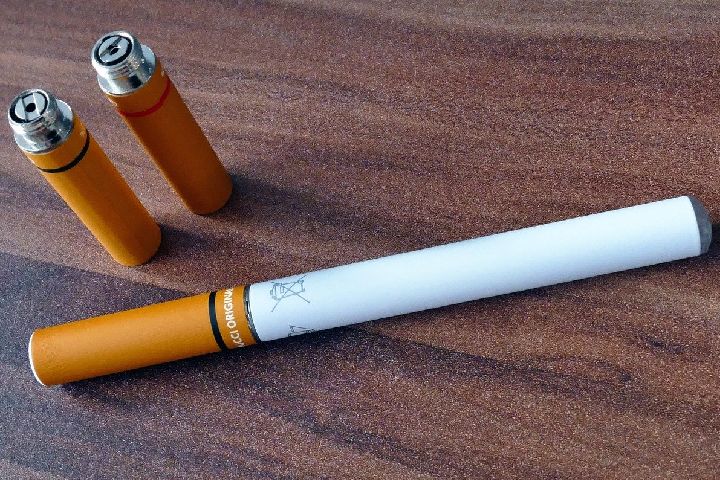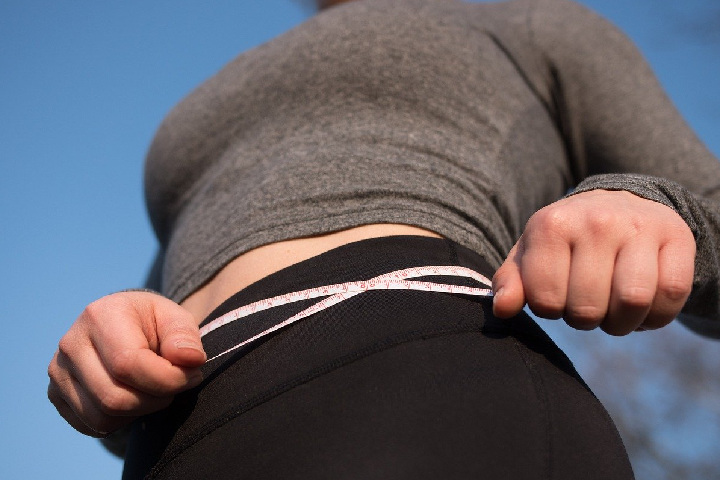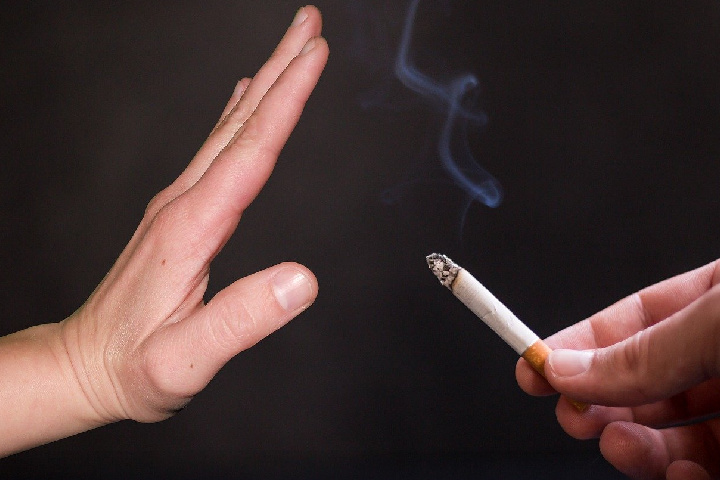Quit Smoking: Your health will win in every way. And it is not true that you get fat or catch more cold. We offer you the best weapons (practical and straightforward) to leave it without going through anxiety and permanently. If you want, you can.
32% of daily smokers have made at least one attempt to quit smoking in the last 12 months. A fact that shows how complicated it can be to abandon this habit in which relapses are common and in which achieving it requires a lot of willpower.
When one has decided to quit smoking, there are routine situations that become real bumps to overcome the first minutes of the day after getting up, stressful situations, a good meal, coffee in the morning or afternoon, and especially drinking alcohol.
All of them can trigger the so-called withdrawal syndrome, which generates anxiety, frustration, and irritability. According to the National Committee for Smoking Prevention, consuming alcohol while quitting reduces quit success by up to 40%.
Table of Contents
1. Tricks to Combat Withdrawal Syndrome
Overcoming situations that cause anxiety without falling into the temptation to light a cigarette will be much easier if you put some tips into practice.
They may seem like routine activities. Still, if you pay attention to each one of them, you will help to disconnect the relationship that your brain makes with smoking and pleasure and connect it with the benefit that other things, simple, but useful, bring it:
If you feel the need to light a cigarette, count 5 minutes, and remember why you want to quit.
Reward yourself for overcoming these ‘mini-crises.’
Avoid alcohol and coffee, especially during the first days. Replace them with natural juices and infusions. Find a low-calorie substitute, like sugar-free gum or candy.

Try to avoid places where you can smoke. Change your routines and take the opportunity to go for a walk. Stay away from stressful situations and arguments. Do not get bored because if you occupy your mind, you will not think about tobacco.
Don’t make excuses for yourself. I think that overcoming this tough challenge will fill you with personal satisfaction. Eat 5 times a day: Your main meals should be moderate, and eating in the middle of the morning and having a snack is essential (always light and healthy snacks).
You will avoid snacking between meals, and you will keep blood sugar levels constant, which drives away irritability. Take natural fruit juices rich in vitamin C – to fight anxiety – and plenty of water.
Exercise: open your lungs, drive away stress, and improve your mood. Doing some relaxing practice like yoga is also helpful.
2. When You Need Extra Help
If you smoke more than half a pack a day or do so in the first half-hour after getting out of bed, you have a significant dependence on nicotine, and it may take more than willpower to quit.
According to the Association against Cancer, more than 3,000 smokers a year request a specialist to try to quit. Because yes, it is essential to seek medical advice before resorting to these mechanisms.
Nicotine Replacement Therapy
It is the one that replaces the nicotine in cigarettes with the use of gum, candy, or patches. Thus, withdrawal symptoms are mitigated, and the dose can be progressively reduced during treatment, which lasts from 8 to 12 weeks. There are several options:
Nicotine gum and candies that are taken when you have a craving for smoking. Sometimes they cause throat irritation, so it should not be abused.
Patches that release nicotine through the skin serve to avoid having to be so aware of the treatment. There are different doses to reduce nicotine as the days go by.

Specific Drugs
The most common is bupropion, which acts at the brain level by reducing anxiety to be useful for people with a tendency to depression.
Another similar drug is varenicline. In the case of opting for them, it is essential to take them under medical supervision.
Although there are no studies that support the effectiveness of alternative therapies such as acupuncture or hypnosis, there are indeed people who have worked since they have managed to reduce the feeling of anxiety to a large extent.
Some time ago, it was taken as an option to replace tobacco with the so-called electronic cigarette. However, the World Health Organization warned about the lack of safety information on this ‘cigarette’ and that it could also present toxic substances similar to those of tobacco.
3. Does Quitting Smoke Make You Fat?
Some studies and day-to-day reality confirm that, when you stop smoking, you can gain from 2 to 5 kilos. But why does it get fat? And above all, can it be avoided? See what happens when you quit smoking:
It would help if you calmed the anxiety. You get fat because the pressure that causes the urge to smoke is usually appeased by biting, so you end up eating more and foods normally caloric.
The trick is to “trick” the stomach with something light: gum, sugar-free candies, or just water, natural juices, or herbal teas. Having pieces of fruit on hand also works.

You recover the smell and the flavor. After quitting tobacco, the sense of taste and smell are remarkably recovered, making food more palatable.
Thus, a kind of “extra” appetite is generated, which must be compensated with satiating foods such as fruits and vegetables.
That does not mean that you go on a diet: if you combine quitting smoking with following a strict diet, your anxiety will multiply by two. Anxiety leads us to choose caloric foods and eat more.
You don’t burn as many calories. When smoking, the body uses about 250 calories a day to eliminate the toxic substances in tobacco.
So when you stop, the body uses less energy. Also, nicotine raises blood sugar, so when you quit, you feel weak and hungry in the middle of the morning.
To avoid overeating and between meals, increase the number of daily meals, reducing each one.
4. Does Letting Tobacco Lower Your Defenses?
There is a myth that once you quit smoking, you get colds more than when you smoked. What happens is that as the body is detoxifying, your body can react in some way to this “cleaning.”
They are disorders that do not always occur, and if they do, they are temporary :
If your throat hurts, you have a cough, or you feel congested, think that it is a defense mechanism of your body since after you stop smoking, the lungs begin to expel all the accumulated toxins.
You may feel more irritable, with difficulty concentrating and feeling that you do not sleep well at night. This means that your nervous system is also detoxifying from nicotine.

Orange juices, broccoli, spinach, carrots, red berries, kiwis, and pineapple are excellent foods to eliminate the nicotine traces from your body.
5. All the Benefits of Quitting Smoking
The benefits of quitting this habit start from day one, and after ten years, the risk of lung cancer drops to half that of continuing to smoke.
But removing cancer and cardiovascular diseases from your life is not the only benefit since from the first days you will begin to notice changes and, in a few weeks, you will already enjoy better health:
- You have more energy.
- Smoker’s cough disappears.
- Improves circulation and lung function.
- You get less tired when you make an effort (running, climbing stairs ).
- Improve the appearance and health of your skin.
- Your pocket will also thank you (a daily pack implies about 1,600 euros a year).

